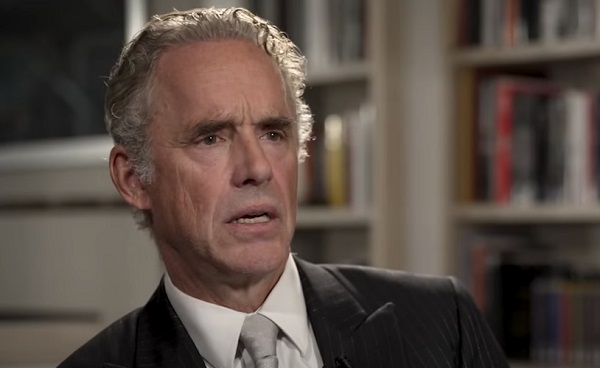National
Jordan Peterson challenges Canadian PM Mark Carney to podcast debate

From LifeSiteNews
Well-known Canadian psychologist and popular podcaster Jordan Peterson has challenged Canadian Prime Minister Mark Carney to speak with him on his podcast.
In a March 8 post on X, Peterson offered to host Carney on his podcast, noting that while he disagrees with many of his ideas, he will offer him a chance to debate them publicly.
“Dear @MarkJCarney: as you may have concluded from my review of your book Values, I have my doubts about the validity of your ideas–all of them,” Peterson wrote, linking to a National Post article in which Peterson details the flaws of Carney’s 2021 book.
Dear @MarkJCarney: as you may have concluded from my review of your book Values, I have my doubts about the validity of your ideas–all of them. https://t.co/XR4juoQo9i
If you'd be willing to debate any of my analysis and claims, you have an open invitation to my podcast.My…
— Dr Jordan B Peterson (@jordanbpeterson) March 9, 2025
“If you’d be willing to debate any of my analysis and claims, you have an open invitation to my podcast,” he offered.
“My recent discussion with @PierrePoilievre was arguably the most watched Canadian political discussion ever: 50 million plus views–in case you’re wondering about my reach,” he continued.
“I’ve had my producer reach out to your team, but thought I should make my offer public,” Peterson declared. Alternatively, you could continue talking to a few hundred people at a time on @CBC.”
To date, Carney has not publicly responded to the invite.
In fact, since announcing his bid to become prime minister, Carney has only done one sit-down interview, appearing on The Daily Show with Jon Stewart in January.
Carney’s lack of public engagement has seen him accused of being hostile to alternative media outlets, an accusation that began in earnest when no less than four journalists from independent media were forcefully barred from attending his January press conference at which he first announced his bid for Liberal leader.
Carney, whose ties to globalist groups have had Conservative Party leader Pierre Poilievre call him the World Economic Forum’s “golden boy”. He has also previously endorsed the carbon tax and even criticized Trudeau when the tax was exempted from home heating oil in an effort to reduce costs for some Canadians.
Just recently, Carney criticized U.S. President Donald Trump for targeting woke ideology, and has vowed to promote “inclusiveness” in Canada.
Carney has also said that he is willing to use all government powers, including “emergency powers,” to enforce his energy plan if elected prime minister.
Fraser Institute
Democracy waning in Canada due to federal policies

From the Fraser Institute
By Lydia Miljan
In How Democracies Die, Harvard political scientists Steven Levitsky and Daniel Ziblatt argue that while some democracies collapse due to external threats, many more self-destruct from within. Democratic backsliding often occurs not through dramatic coups but through the gradual erosion of institutions by elected leaders—presidents or prime ministers—who subvert the very system that brought them to power. Sometimes this process is swift, as in Germany in 1933, but more often it unfolds slowly and almost imperceptibly.
The book was written during Donald Trump’s first presidential term, when the authors expressed concern about his disregard for democratic norms. Drawing on Juan Linz’s 1978 work The Breakdown of Democratic Regimes, Levitsky and Ziblatt identified several warning signs of democratic decline in Trump’s leadership: rejection of democratic rules, denial of the legitimacy of political opponents, tolerance or encouragement of violence, and a willingness to restrict dissent including criticism from the media.
While Trump is an easy target for such critiques, Levitsky and Ziblatt’s broader thesis is that no democracy is immune to these threats. Could Canada be at risk of democratic decline? In light of developments over the past decade, perhaps.
Consider, for example, the state of free speech and government criticism. The previous Liberal government under Justin Trudeau was notably effective at cultivating a favourable media environment. Following the 2015 election, the media enjoyed a prolonged honeymoon period, often focusing on the prime minister’s image and “sunny ways.” After the 2019 election, which resulted in a minority government, the strategy shifted toward direct financial support. Citing pandemic-related revenue losses, the government introduced “temporary” subsidies for media organizations. These programs have since become permanent and costly, with $325 million allocated for 2024/25. During the 2025 election campaign, Mark Carney pledged to increase this by an additional $150 million.
Beyond the sheer scale of these subsidies, there’s growing concern that legacy media outlets—now financially dependent on government support—may struggle to maintain objectivity, particularly during national elections. This dependency risks undermining the media’s role as a watchdog of democracy.
Second, on April 27, 2023, the Trudeau government passed Bill C-11, an update to the Broadcasting Act that extends CRTC regulation to digital content. While individual social media users and podcasters are technically exempt, the law allows the CRTC to regulate platforms that host content from traditional broadcasters and streaming services—raising concerns about indirect censorship. This move further restricted freedom of speech in Canada.
Third, the government’s invocation of the Emergencies Act to end the Freedom Convoy protest in Ottawa was ruled unconstitutional by Federal Court Justice Richard Mosley who found that the government had not met the legal threshold for such extraordinary powers. The same day of the ruling the government announced it would appeal the 200-page decision, doubling down on its justification for invoking the Act.
In addition to these concerns, federal government program spending has grown significantly—from 12.8 per cent of GDP in 2014/15 to a projected 16.2 per cent in 2023/24—indicating that the government is consuming an increasing share of the country’s resources.
Finally, Bill C-5, the One Canadian Economy Act, which became law on June 26, grants the federal cabinet—and effectively the prime minister—the power to override existing laws and regulations for projects deemed in the “national interest.” The bill’s vague language leaves the definition of “national interest” open to broad interpretation, giving the executive branch unprecedented authority to micromanage major projects.
Individually, these developments may appear justifiable or benign. Taken together, they suggest a troubling pattern—a gradual erosion of democratic norms and institutions in Canada.
Business
Conservatives demand probe into Liberal vaccine injury program’s $50m mismanagement

From LifeSiteNews
The Liberals’ Vaccine Injury Support Program is accused of mismanaging a $50-million contract with Oxaro Inc. and failing to resolve claims for thousands of vaccine-injured Canadians.
Conservatives are calling for an official investigation into the Liberal-run vaccine injury program, which has cost Canadians millions but has little to show for it.
On July 14th, four Conservative Members of Parliament (MPs) signed a letter demanding answers after an explosive Global News report found the Liberals’ Vaccine Injury Support Program (VISP) misallocated taxpayer funds and disregarded many vaccine-injured Canadians.
“The federal government awarded a $50 million taxpayer-funded contract to Oxaro Inc. (formerly Raymond Chabot Grant Thornton Consulting Inc.). The purpose of this contract was to administer the VISP,” the letter wrote.
“However, there was no clear indication that Oxaro had credible experience in healthcare or in the administration of health-related claims raising valid questions about how and why this firm was selected,” it continued.
Canada’s VISP was launched in December 2020 after the Canadian government gave vaccine makers a shield from liability regarding COVID-19 jab-related injuries.
However, mismanagement within the program has led to many injured Canadians still waiting to receive compensation, while government contractors grow richer.
“Despite the $50 million contract, over 1,700 of the 3,100 claims remain unresolved,” the Conservatives continued. “Families dealing with life-altering injuries have been left waiting years for answers and support they were promised.”
Furthermore, the claims do not represent the total number of Canadians injured by the allegedly “safe and effective” COVID shots, as inside memos have revealed that the Public Health Agency of Canada (PHAC) officials neglected to report all adverse effects from COVID shots and even went as far as telling staff not to report all events.
The PHAC’s downplaying of vaccine injuries is of little surprise to Canadians, as a 2023 secret memo revealed that the federal government purposefully hid adverse effect so as not to alarm Canadians.
Of the $50.6 million that Oxaro Inc., has received, $33.7 million has been spent on administrative costs, compared to only $16.9 million going to vaccine-injured Canadians.
The letter further revealed that former VISP employees have revealed that the program lacked professionalism, describing what Conservatives described as “a fraternity house rather than a professional organization responsible for administering health-related claims.”
“Reports of constant workplace drinking, ping pong, and Netflix are a slap in the face to taxpayers and the thousands of Canadians waiting for support for life altering injuries,” the letter continued.
Regardless of this, the Liberal government, under Prime Minister Mark Carney, is considering renewing its contract with Oxaro Inc.
Indeed, this would hardly be the first time that Liberals throw taxpayer dollars at a COVID program that is later exposed as ineffective and mismanaged.
Canada’s infamous ArriveCan app, which was mandated for all travelers in and out of Canada in 2020, has cost Canadians $54 million, despite the Public Health Agency of Canada admitting that they have no evidence that the program saved lives.
Details regarding the app and the government contracts surrounding it have been hidden from Canadians, as Liberals were exposed in 2023 for hiding a RCMP investigation into the app from auditors.
An investigation of the ArriveCan app began in 2022 after the House of Commons voted 173-149 for a full audit of the controversial app.
-

 Addictions1 day ago
Addictions1 day agoWhy B.C.’s new witnessed dosing guidelines are built to fail
-

 Business1 day ago
Business1 day agoCarney Liberals quietly award Pfizer, Moderna nearly $400 million for new COVID shot contracts
-

 Frontier Centre for Public Policy2 days ago
Frontier Centre for Public Policy2 days agoCanada’s New Border Bill Spies On You, Not The Bad Guys
-

 Business1 day ago
Business1 day agoMark Carney’s Fiscal Fantasy Will Bankrupt Canada
-

 Opinion1 day ago
Opinion1 day agoCharity Campaigns vs. Charity Donations
-

 Energy2 days ago
Energy2 days agoCNN’s Shock Climate Polling Data Reinforces Trump’s Energy Agenda
-

 Red Deer1 day ago
Red Deer1 day agoWesterner Days Attraction pass and New Experiences!
-

 COVID-191 day ago
COVID-191 day agoTrump DOJ dismisses charges against doctor who issued fake COVID passports






